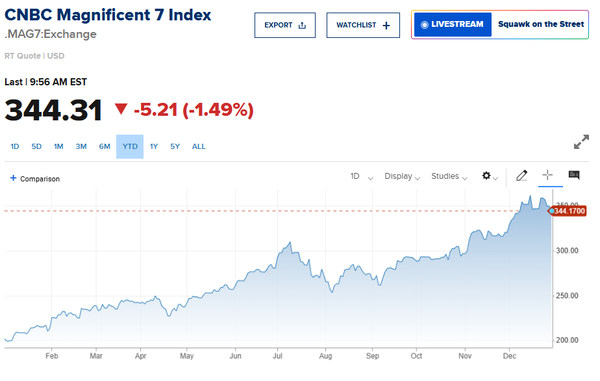New tech stock pick for tomorrow
The first week of trading in 2012 has come and gone, and we’re all still here. A couple good things happened in Europe, a couple bad things happened in Europe, a central banker profited from his policy decisions, and no one has any idea what’s going to happen with the Euro but they’re pretty sure it won’t be good. This macro nonsense will surely have an impact on outlooks, companies will guide more conservatively, and politicians running for office will spin it to support their brand of reform/welfare. But we want to be investing in areas where a sovereign default would not fundamentally change human habits. The fundamental way we exchange data and entertain ourselves is changing, and no financial crisis can put that genie back in its bottle.
The last few editions of the newsletter have been squarely short, focused on companies that are recipients of federal welfare. So let’s shift the conversation to the positives in the world, away from the financialization of our economy, to technology trends that could actually create jobs. This week I’d like to reaffirm a position in our portfolio and add a new one.
You definitely know by now that one of my biggest investing themes for future is cloud computing; I even wrote a book about it, “30 Stocks for the Cloud Revolution”, available at no-cost to all TradingWithCody.com subscribers. For a quick refresher let’s consult it, just to nail down exactly what ‘cloud’ means:
“The entire concept of the cloud as an industry has been around for more than a decade, but it’s only now that the tectonic plates of technology are aligned for the Cloud Revolution to take off. As ubiquitous broadband becomes a reality, as the cost of data storage has continued to plummet for decades now and as processing powers in smartphones, tablets and car dashboards surpass what the best PCs could do just five years ago, we’re all moving toward consuming, storing and accessing our information, entertainment and work in the cloud. “
Or to put it even more bluntly: you can access any data you want, in any form, on any device, at any time, anywhere in the world. Thing about just how big of a shift that is, being able to rewind a live broadcast from a mobile phone or grab an enormous powerpoint file from the web instead of having to bring along a USB key. I.B.M, (one of the trailblazers in the field, which they originally termed ‘on demand computing’) has seen the cloud become a huge driver of revenues, while competitor HP, who focused on hardware with it’s enormous Compaq acquisition, has floundered.
In the last couple years Cloud has gone from the IT department to the mainstream. One of the most visible consumer rollouts has been remote backup of one’s data, where services like Carbonite (who advertises on both Rush Limbaugh & NPR) can restore a crashed and/or burned hard drive. And every time you fire up an instant movie on Netflix, instead of waiting 2-3 business days for a disc in the mail, you’re accessing the cloud.
There’s a host of new entertainment options coming out in the near future that will make sure the cloud is seamlessly integrated as a reality into everyone’s content consumption habits. Just as happened with the iphone, all electronics manufacturers are freaking out over Apple’s seemingly imminent entry into TV sets. While I won’t speculate here as to just what an iTV will do (your laundry? 4D?) it will undoubtedly integrate Apple’s icloud, allowing users to access their itunes and iphoto accounts on a big screen. Sending all those packets of data around takes capacity and Apple has been building data farms to up their own internal cloud capacity. And you’ve probably been hearing about Spotify, which board member Sean Parker has said fulfills his vision of Napster. Try it out sometime if you get a chance—the desktop version is free, and lets you play an enormous catalog of songs. But if you want to take unlimited, on-demand music with you after you curate all those play lists? That’s $10 a month. To be able to charge a premium for that mobile data addiction Spotify will be spending millions on its Cloud infrastructure.
We are clearly at a tipping point for the Cloud. And just where all that spending will go is to companies like Riverbedand F5. And just because cloud is growing overall, doesn’t necessarily mean a rising tide will raise all boats. It’s better to drill down into specific companies and technologies rather than buying a random basket of cloud stocks or the cloud ETF, (First Trade Sky ISE Cloud Computing Index NASDAQ: SKYY), which is I’m adding a new-old name to our Revolution Portfolio, F5 Networks, Inc. (NASDAQ: FFIV) and buying more Riverbed.
Riverbed took a hit in 2011, seeing its share price fall ~30%. After going through the data and numbers, I’m convinced the story hasn’t change. Riverbed’s products are scaleable for IT departments to install, show immediate cost savings to accounting departments, and create long-term recurring revenue streams. Looking closer at numbers that gave investors a pause, I see any drops in revenue and profits as hiccups caused by the aforementioned macro issues, not a change in the long term story. There was definitely a Q3 drop in spending by one of Riverbed’s biggest customers, the government, but that should be more than compensated for by a Q4 spike in orders, the famous year end ‘flush’. And at these levels I think all the negativity is baked in, and no one is even thinking about the possibility of a takeover, like just happened with competitor Blue Coat.
F5 is an excellent complement to Riverbed, because even though at 1st blush they appear to be competitors, their technologies tackle the same problems in different ways. F5 specializes in the virtualization space, which enables huge customers to seamlessly push out data. From my Cloud book:
“Whether we’re talking about video-enabled search downloads from Google and CBS or the latest customer relations software from Oracle, F5’s load balancing, security and quality control enablers are necessary. In fact, F5’s products are required pretty much no matter what the multimedia application. F5, in some sense then, is the company that enables the exploding “convergence” that is taking place all around us.”
In my estimation this is a pretty good entry point for F5 right here, it’s down 22% from a year ago. At around 7x price/sales, with no net-debt and double-digit revenue growth, F5 has plenty of room to run. When you add in a scenario where Cisco, which necessarily needs to grow by acquisition, is interested, the stock looks downright cheap.



